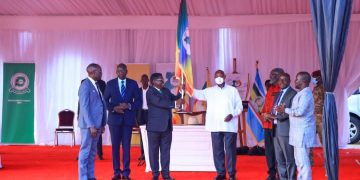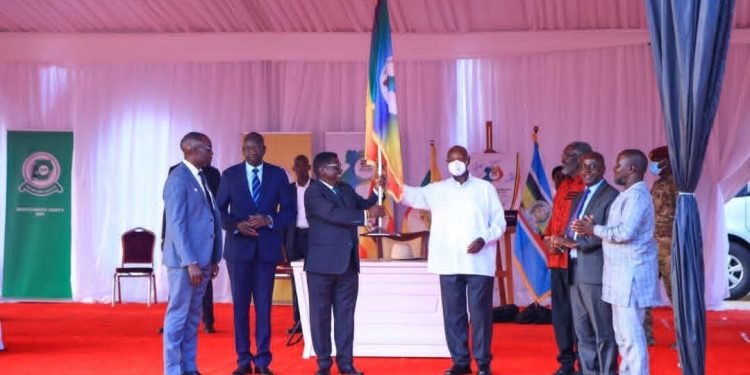President Yoweri Kaguta Museveni has once again called on Uganda’s political leaders to embrace dialogue and reject violence as the country gears up for the 2026 general elections.
Speaking at the Inter-Party Organisation for Dialogue (IPOD) Summit at Kololo Ceremonial Grounds on September 18, 2025, President Museveni said Uganda’s progress depends on leaders correctly diagnosing national challenges and adopting peaceful solutions instead of resorting to subversion or divisive politics.
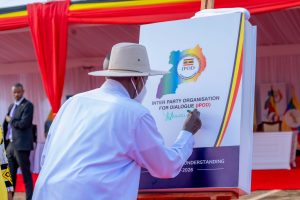
“As we have seen in the last 40 years, the NRM has revived Uganda’s economy. Although we still face challenges, we are much stronger than ever before. Even if one has a wrong understanding, as long as they are not violent, the country will remain stable, and in the future, mistakes can be corrected,” President Museveni said.
Summit Brings Together Six Political Parties
The summit, held under the theme “Together for a Peaceful and Sustainable Uganda,” brought together Presidents and Secretary Generals of six political parties: NRM, DP, UPC, FDC, JEEMA, and the PPP.
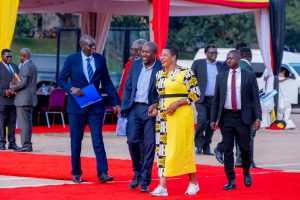
In his keynote address as both NRM National Chairman and IPOD Summit Chair, President Museveni emphasized that Africa’s biggest tragedy stems from “wrong diagnoses of societal problems combined with violent methods.”
“That is how chaos arises in many African countries. Even when you make mistakes, if there is peace, there is room for correction. But when you combine wrong ideas with violence, you get a total breakdown,” he cautioned.
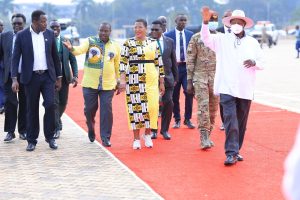
Reflecting on his 65 years in politics—beginning as a Democratic Party youth leader in 1960 before joining UPC in 1970—President Museveni compared political leadership to medicine.
“Politics must be like medicine. A political leader should be like a doctor—able to correctly diagnose the problems of society. If the diagnosis and prescription are wrong, the patient dies. If leaders misdiagnose societal issues, their countries collapse,” he explained.
He reiterated the NRM’s four principles—patriotism, Pan-Africanism, socio-economic transformation, and democracy—as the foundation for Uganda’s future stability and growth.
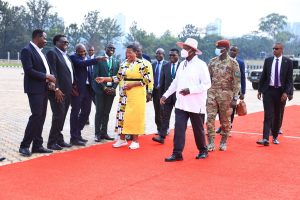
Teachers’ Strike, Resource Allocation Discussed
During discussions, UPC President Jimmy Akena raised the recent teachers’ strike. In response, President Museveni stressed the importance of resource prioritization, citing the Soroti Flying School case where pilots and engineers were prioritized to prevent the school from collapsing.
“They were saying, we must all get equal, either we all get or nobody gets. That logic is not correct. We, freedom fighters, always prioritize. I advised them, and they agreed to pay the pilots well,” he said.
IPOD Leadership Changes Hands
The summit also marked the transition of IPOD leadership from President Museveni to Democratic Party President General, Hon. Norbert Mao.
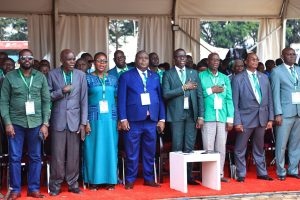
“Thank you for having trusted us, NRM, for the last five years with the leadership. I now peacefully hand over,” President Museveni announced.
Hon. Mao pledged to use his tenure to promote consensus-building, dialogue, and peaceful elections in 2026.
“So today, I, on behalf of the DP, take the leadership of IPOD. Our agenda will be to ensure that we have a peaceful election, a free and fair process, and that we shall continue to talk honestly about the problems we face rather than attacking each other,” he said.
“We cannot have a country where there is no consensus about anything. We may disagree on some things, but we must find common ground. IPOD is about finding common ground because the unity of Uganda is paramount,” he added, commending President Museveni for ordering the release of nearly 70 political detainees earlier this year.
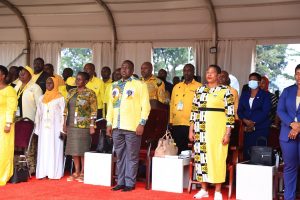
Party Leaders Call for Unity, Dialogue
Other opposition leaders echoed the call for peace and inclusivity:
UPC’s Jimmy Akena: “As Ugandans, we may not agree on every policy, but we must focus on the greater good. UPC will always choose dialogue to overcome difficulties.”
FDC President Patrick Oboi Amuriat: “Our country is fractured along tribal, religious, and political lines. We must emphasize reconciliation. Clemency will demonstrate goodwill and help this country move forward.”
JEEMA’s Asuman Basalirwa: “Uganda’s problems can only be solved through dialogue and consensus.”
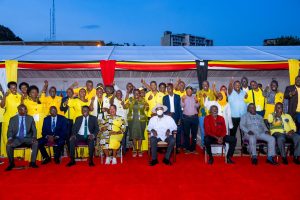
PPP’s Saddam Gayira: “In 30 years of politics, I have never been summoned by the police. Even in the last election, none of our members were arrested. Why? Because we preach peaceful engagement.”
IPOD’s Future Role
Dr. Lawrence Sserwambala, IPOD Executive Director, noted the platform’s achievements but cautioned about ongoing challenges such as electoral violence, weak enforcement of codes of conduct, and youth vulnerability.
“Uganda’s youthful population, particularly in urban ghettos, is vulnerable to manipulation into violence. IPOD must nurture them as champions of peace,” he urged.
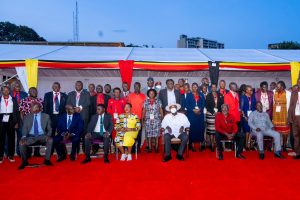
He emphasized that the 2026 elections present an opportunity to strengthen consensus, fairness, and inclusivity.
“Uganda is watching us. History will judge us by the choices we make. Let us choose peace, let us dialogue, let us put Uganda first,” Dr. Sserwambala concluded.
The summit was attended by top leaders, including Speaker of Parliament Anita Among, Electoral Commission Chairperson Justice Simon Byabakama, and NRM Central Executive Committee members, highlighting broad support for dialogue as a tool for conflict resolution and democratic progress.
